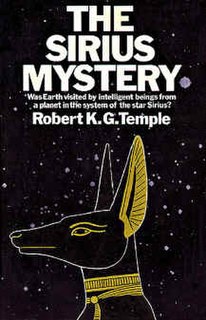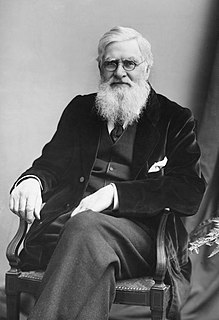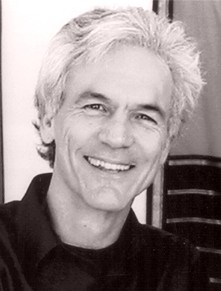Top 637 Planets Quotes & Sayings - Page 11
Explore popular Planets quotes.
Last updated on April 16, 2025.
Who can tell us of the inhabitants of this little planet that shines of an evening, called the moon?...when you inquire about the inhabitants of that sphere you find that the most learned are as ignorant in regard to them as the most ignorant of their fathers. So it is in regard to the inhabitants of the sun. Do you think it is inhabited? I rather think it is. Do you think there is any life there? No question of it; it was not made in vain. It was made to give light to those who dwell upon it, and to other planets; and so will this earth when it is celestialized
In the fabulous ages of ancient times the appellations of Mercury, Venus, Mars, Jupiter, and Saturn were given to the planets as being the names of their principal heroes and divinities. In the present more philosophical era, it would hardly be allowable to have recourse to the same method, and call on Juno, Pallas, Apollo, or Minerva for a name to out new heavenly body. . . . I cannot but wish to take this opportunity of expressing my sense of gratitude, by giving the name Georgium Sidus, to a star [Uranus], by which (with to respect to us) first began to shine under His auspicious reign.
The next 15 years will see thousands of people leave the atmosphere on suborbital flights. My company's SS2 system might fly 100,000 people by 2024. If it is shown to be highly profitable, perhaps we will see 20,000 people traveling to orbit by 2035, and then thousands to the moon by 2050. If we make a courageous decision, like the program we kicked off for Apollo, we will see our grandchildren in outposts on other planets.
Impartial observers from other planets would consider ours an utterly bizarre enclave if it were populated by birds, defined as flying animals, that nevertheless rarely or never actually flew. They would also be perplexed if they encountered in our seas, lakes, rivers, and ponds, creatures defined as swimmers that never did any swimming. But they would be even more surprised to encounter a species defined as a thinking animal if, in fact, the creature very rarely indulged in actual thinking.
I tell my students, with a feeling of pride that I hope they will share, that the carbon, nitrogen, and oxygen that make up ninety-nine per cent of our living substance were cooked in the deep interiors of earlier generations of dying stars. Gathered up from the ends of the universe, over billions of years, eventually they came to form, in part, the substance of our sun, its planets, and ourselves. Three billion years ago, life arose upon the earth. It is the only life in the solar system.
Rest enough for the individual man, too much and too soon, and we call it death. But for man, no rest and no ending. He must go on, conquest beyond conquest. First this little planet and all its winds and ways, and then all the laws of mind and matter that restrain him. Then the planets about him, and, at last, out across immensities to the stars. And when he has conquered all the deep space, and all the mysteries of time, still he will be beginning.
The wisdom of God exceeds that of the wisest man, more than his wisdom exceeds that of a child. If a child were to conjecture how an army is to be formed in the day of battle--how a city is to be fortified, or a state governed--what chance has he to guess right? As little chance has the wisest man when he pretends to conjecture how the planets move in their courses, how the sea ebbs and flows, and how our minds act upon our bodies.
I've always enjoyed stories that take place in the future but my one disappointment was that the future books described never came. We're not on other planets, there are no flying cars, and the only robots we have in our homes just sweep the floor. So I wanted to write about a future that I thought could really happen. People ask me when I tell them the title of the book, 'Are we all dead?' The good news is, no. We're still here. And I even think the future in my book is strangely hopeful, although I'm sure there will be people who strongly disagree.
I should say we know that there are many, many other Earths out there. We're almost certain that there will be upwards of a billion Earth-like planets in our galaxy alone, so there is no lack of real estate where life might happen, but what we don't know is how likely it is given the real estate, given a wonderful pristine planet like Earth how likely is it that life will pop up inhabited? We don't know the answer to that.
I haven't written poetry in a long time but I read it and I miss it. It is so hard to write. So hard to finish, so hard to find the exact word to make it shine. In honor of my youth I will write a poem to finish this essay. It is spring in the Ozark Mountains. The yellow flowers are blooming and the birds wake me at dawn and last night five planets lined up by the moon in the western sky. If that doesn't inspire me to poetry what will?
The chemical compounds are comparable to a system of planets in that the atoms are held together by chemical affinity. They may be more or less numerous, simple or complex in composition, and in the constitution of the materials, they play the same role as Mars and Venus do in our planetary system, or the compound members such as our earth with its moon, or Jupiter with its satellites... If in such a system a particle is replaced by one of different character, the equilibrium can persist, and then the new compound will exhibit properties similar to those shown by the original substance.
I think most of my approach to life has been like that, to find order in chaos, to be in the middle of a bunch of things happening at the same time, but find focus. I strive to be like the sun sitting in the middle of the solar system with all the planets spinning around it - millions of things going on. It's just sitting there being the sun, but exerting gravitational effect on everything. I think man should look at himself that way.
Cocoa-buttered girls were stretched out on the public beach in apparently random alignments, but maybe if a weather satellite zoomed in on one of those bodies and then zoomed back out, the photos would show the curving beach itself was another woman, a fractal image made up of the particulate sunbathers. All the beaches pressed together might form female landmasses, female continents, female planets and galaxies. No wonder men felt tense.
Sooner or later for good or ill, a united mankind, equipped with science and power, will probably turn its attention to the other planets, not only for economic exploitation, but also as possible homes for man. . . . The goal for the solar system would seem to be that it should become an interplanetary community of very diverse worlds . . . . Through the pooling of this wealth of experience, through this 'commonwealth of worlds,' new levels of mental and spiritual development should become possible, levels at present quite inconceivable to man.
Every one knows that the heavenly bodies move in certain paths in relation to each other with seeming consistency and regularity which we call [physical] law. ... No one attributes freewill or motive to the material world. Is the conduct of man or the other animals any more subject to whim or choice than the action of the planets? ... We know that man's every act is induced by motives that led or urged him here or there; that the sequence of cause and effect runs through the whole universe, and is nowhere more compelling than with man.
People think that alien spaceships would be solid and made of metal and have lights all over them and move slowly through the sky because that is how we would build a spaceship if we were able to build one that big. But aliens, if they exist, would probably be very different from us. They might look like big slugs, or be flat like reflections. Or they might be bigger than planets. Or they might not have bodies at all. They might just be information, like in a computer. And their spaceships might look like clouds, or be made up of unconnected objects like dust or leaves.
It is known that there are an infinite number of worlds, simply because there is an infinite amount of space for them to be in. However, not every one of them is inhabited. Therefore, there must be a finite number of inhabited worlds. Any finite number divided by infinity is as near to nothing as makes no odds, so the average population of all the planets in the Universe can be said to be zero. From this it follows that the population of the whole Universe is also zero, and that any people you may meet from time to time are merely the products of a deranged imagination.
Decades ago, visitors from other planets warned us about the direction we were heading and offered to help. Instead, some of us interpreted their visits as a threat, and decided to shoot first and ask questions after. It is ironic that the US should be fighting monstrously expensive wars, allegedly to bring democracy to those countries, when it itself can no longer claim to be called a democracy when trillions, and I mean thousands of billions of dollars have been spent on black projects which both congress and the commander in chief have been kept deliberately in the dark.
In my mind, I gave the woman gifts. I gave her a candle stub. I gave her a box of wooden kitchen matches. I gave her a cake of Lifebuoy soap. I gave her a ceilingful of glow-in-the-dark planets. I gave her a bald baby doll. I gave her a ripe fig, sweet as new wood, and a milkdrop from its stem. I gave her a peppermint puff. I gave her a bouquet of four roses. I gave her fat earthworms for her grave. I gave her a fish from Roebuck Lake, a vial of my sweat for it to swim in.
Scientists are educated from a very early time and a very early age to believe that the greater scientist is the scientist who makes discoveries or theories that apply to the greatest ambit of things in the world. And if you've only made a very good theory about snails, or a very good theory about some planets but not about the universe as a whole, or about all the history of humankind, then you have in some sense accepted a lower position in the hierarchy of the fame of science as it's taught to you as a young student.
It must be a very dour and pessimistic astronomer indeed who seriously doubts that there must be countless numbers of intelligent civilizations scattered throughout the universe on other planets which are orbiting around other stars. An attitude which asserts that man is the only intelligent life form in the universe is intolerably arrogant today ... anyone who holds such an opinion today is, fortunately for those who like to see some progress in human conceptions, something of an intellectual freak equivalent to a believer in the Flat Earth Theory.
Knox was engaged in a theological discussion with scientist John Scott Haldane. 'In a universe containing millions of planets,' reasoned Haldane, 'is it not inevitable that life should appear on at least one of them?' 'Sir,' replied Knox, 'if Scotland Yard found a body in your cabin trunk, would you tell them: 'There are millions of trunks in the world; surely one of them must contain a body? I think the would still want to know who put it there'.
The thing that was forfeited in the garden was regained. God gave him [Adam] dominion over the works of His hand. God made him His understudy, His king to rule over everything that had life. Man was master, man lived in the realm of god. He lived on terms of equality with God. God was a faith God. All God had to do was to believe that the sun was, and the sun was. All God had to do was to believe that the planets would be, and they were. Man belonged to God's class of being - a faith man, And he lived in the creative realm of God
From my childhood it has been my conviction that men would reach the planets in my lifetime . . . this conviction . . . rests on two beliefs, one scientific and one political: (1) there are more things in heaven and earth than are dreamed of in our present-day science. And we shall only find out what they are if we go out and look for them. (2) it is in the long run essential to the growth of any new and high civilization that small groups of people can escape from their neighbors and from their governments, to go and live as they please in the wilderness.
There are more stars than there are people. Billions, Alan had said, and millions of them might have planets just as good as ours. Ever since I can remember, I’ve felt too big. But now I felt small. Too small. Too small to count. Every star is massive, but there are so many of them. How could anyone care about one star when there were so many spare? And what if stars were small? What if all the stars were just pixels? And earth was less than a pixel? What does that make us? And what does that make me? Not even dust. I felt tiny. For the first time in my life I felt too small.
Half an hour later, each of them had been given a complicated circular chart, and was attempting to fill in the position of the planets at their moment of birth. It was dull work, requiring much consultation of timetables and calculation of angles. “I’ve got two Neptunes here,” said Harry after a while, frowning down at his piece of parchment, “that can’t be right, can it?” “Aaaaah,” said Ron, imitating Professor Trelawney’s mystical whisper, “when two Neptunes appear in the sky, it is a sure sign that a midget in glasses is being born, Harry . . .
Most Jupiter-sized planets orbit the mother star in a highly elliptical orbit. This means they will often cross the orbit of any Earth-like planet and fling it into outer space, making life impossible. But our Jupiter travels in a near-perfect circular orbit, preventing a collision with any Earth-like planet, making life possible.
Lay down these words Before your mind like rocks. placed solid, by hands In choice of place, set Before the body of the mind in space and time: Solidity of bark, leaf, or wall riprap of things: Cobble of milky way. straying planets, These poems, people, lost ponies with Dragging saddles -- and rocky sure-foot trails. The worlds like an endless four-dimensional Game of Go. ants and pebbles In the thin loam, each rock a word a creek-washed stone Granite: ingrained with torment of fire and weight Crystal and sediment linked hot all change, in thoughts, As well as things.
Isaac Watts, of course, is a hymn writer in the tradition of Congregationalism who lived in the seventeenth and early eighteenth century. He is very interesting and important because he was also a metaphysician. He knew a great deal about what was, for him, contemporary science. He was very much influenced by Isaac Newton, for example. There are planets and meteors and so on showing up in his hymns very often. But, again, the scale of his religious imagination corresponds to a very generously scaled scientific imagination.
The capacity of the mind is broad and huge, like the vast sky. Do not sit with a mind fixed on emptiness. If you do, you will fall into a neutral kind of emptiness. Emptiness includes the sun, moon, stars, and planets, the great earth, mountains and rivers, all trees and grasses, bad people and good people, bad things and good things, heaven and hell; they are all in the midst of emptiness. The emptiness of human nature is also like this.
Most scientists assumethat life can only exist in physical life form. They send spaceships to other planets, looking for signs of physical life, not considering that life "may" also exist as energy or etheric form. Based on clairvoyant investigation, life also exists in etheric (energy) form; there are etheric beings of different degrees of awareness and development.
There might have been a hundred or a thousand life-bearing planets, had the course of evolution of the universe been a little different, or there might have been none at all. They would probably add, that, as life and man have been produced, that shows that their production was possible; and therefore, if not now then at some other time, if not here then in some other planet of some other sun, we should be sure to have come into existence; or if not precisely the same as we are, then something a little better or a little worse.
Thus far I have explained the phenomena of the heavens and of our sea by the force of gravity, but I have not yet assigned a cause to gravity. Indeed, this force arises from some cause that penetrates as far as the centers of the sun and planets without any diminution of its power to act, and that acts not in proportion to the quantity of the surfaces of the particles on which it acts (as mechanical causes are wont to do) but in proportion to the quantity of solid matter, and whose action is extended everywhere to immense distances, always decreasing as the squares of the distances.
The creation story unfurling within the scientific enterprise provides the fundamental context, the fundamental arena of meaning, for all the peoples of the Earth. For the first time in human history, we can agree on the basic story of the galaxies, the stars, the planets, minerals, life forms, and human cultures. This story does not diminish the spiritual traditions of the classical or tribal periods of human history. Rather, the story provides the proper setting for the teachings of all traditions, showing the true magnitude of their central truths.
When we consider that each of us has only one life to live, isn’t it rather tragic to find men and women, with brains capable of comprehending the stars and the planets, talking about the weather; men and women, with hands capable of creating works of art, using those hands only for routine tasks; men and women, capable of independent thought, using their minds as a bowling-alley for popular ideas; men and women, capable of greatness, wallowing in mediocrity; men and women, capable of self-expression, slowly dying a mental death while they babble the confused monotone of the mob?
Not unnaturally, many elevators imbued with intelligence and precognition became terribly frustrated with the mindless business of going up and down, up and down, experimented briefly with the notion of going sideways, as a sort of existential protest, demanded participation in the decision-making process and finally took to squatting in basements sulking. An impoverished hitch-hiker visiting any planets in the Sirius star system these days can pick up easy money working as a counsellor for neurotic elevators.



































